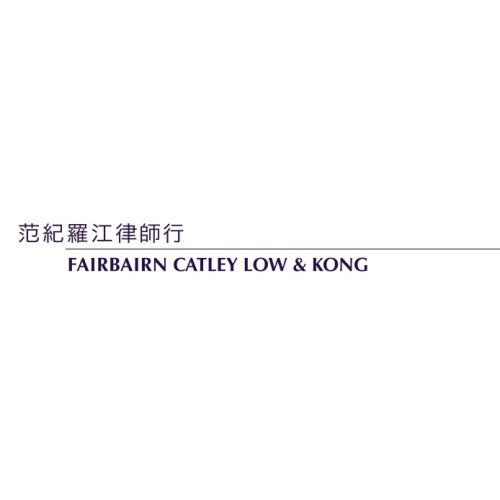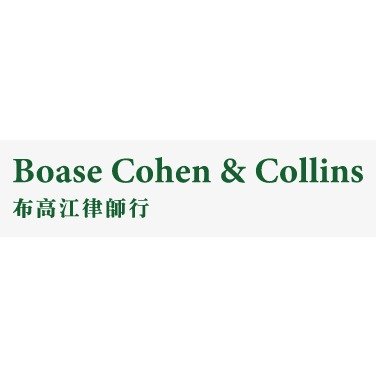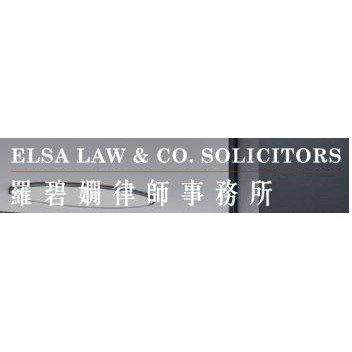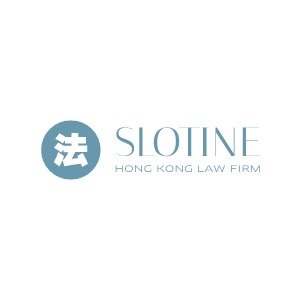Best Employer Lawyers in Wanchai
Share your needs with us, get contacted by law firms.
Free. Takes 2 min.
List of the best lawyers in Wanchai, Hong Kong
About Employer Law in Wanchai, Hong Kong
Employer law in Wanchai, Hong Kong is a comprehensive legislation that provides protection to the rights and privileges of employers and employees in the district. This regulatory framework entails regulations governing contracts, labor disputes, salary compensation, workplace safety, and employees' rights, among others.
Complying with this complex body of law is essential for businesses to maintain smooth operations and prevent legal issues. In cases of legal disputes, it is crucial that employers understand their rights and responsibilities under the law.
Why You May Need a Lawyer
Legal help is often necessary in many employer-related situations. Examples include creating employment contracts and workplace policies, handling terminations and layoffs, disputing compensation claims, or facing allegations of workplace misconduct or discrimination. A lawyer can provide legal guidance and representation, helping you understand the implications of the employer law and your obligations as an employer.
Local Laws Overview
The key aspects of local laws related to employer law in Wanchai, Hong Kong include:
1. Employment Ordinance: This law outlines the rights, protections, privileges, and responsibilities of employers and employees.
2. Employees’ Compensation Ordinance: Regulates the compensation of employees who suffer occupation-related injuries or diseases.
3. Occupational Safety and Health Ordinance: Ensures workplace safety and health conditions.
Frequently Asked Questions
What are the hours of work according to Hong Kong labor law?
The maximum working hours in Hong Kong are not legally fixed. The working hours are usually agreed upon by the employer and the employee.
What are the laws regarding employee termination in Hong Kong?
The Employment Ordinance states that either party can terminate a contract of employment. However, the employer must give due reason for termination and provide appropriate notice or payment in lieu.
How does employment legislation in Hong Kong protect against discrimination?
Hong Kong has anti-discrimination ordinances that protect employees from discrimination based on sex, disability, family status, and race.
What are employers' obligations in the event of an employee's work-related injury?
Employers are required by the Employees’ Compensation Ordinance to report work injuries to the Labour Department and pay compensation to the injured employee.
Am I required to provide a written employment contract to my employees in Hong Kong?
While the law does not require a written employment contract, it's highly recommended. This helps in creating clarity between the involved parties and is beneficial in case of disputes.
Additional Resources
The Department of Justice, the Labour Department, and the Equal Opportunities Commission provide comprehensive resources on employer law. Employers can also refer to guidelines and articles published by legal firms and human resources bodies for further information.
Next Steps
If you need legal assistance related to employer law, consider consulting with a legal professional who specializes in this area. This could be a law firm, legal advisor, or a legal aid organization. Additionally, familiarize yourself with the laws and regulations governing employer issues in Hong Kong to better understand your rights, responsibilities, and the measures you can take to comply with them.
Lawzana helps you find the best lawyers and law firms in Wanchai through a curated and pre-screened list of qualified legal professionals. Our platform offers rankings and detailed profiles of attorneys and law firms, allowing you to compare based on practice areas, including Employer, experience, and client feedback.
Each profile includes a description of the firm's areas of practice, client reviews, team members and partners, year of establishment, spoken languages, office locations, contact information, social media presence, and any published articles or resources. Most firms on our platform speak English and are experienced in both local and international legal matters.
Get a quote from top-rated law firms in Wanchai, Hong Kong — quickly, securely, and without unnecessary hassle.
Disclaimer:
The information provided on this page is for general informational purposes only and does not constitute legal advice. While we strive to ensure the accuracy and relevance of the content, legal information may change over time, and interpretations of the law can vary. You should always consult with a qualified legal professional for advice specific to your situation.
We disclaim all liability for actions taken or not taken based on the content of this page. If you believe any information is incorrect or outdated, please contact us, and we will review and update it where appropriate.

















